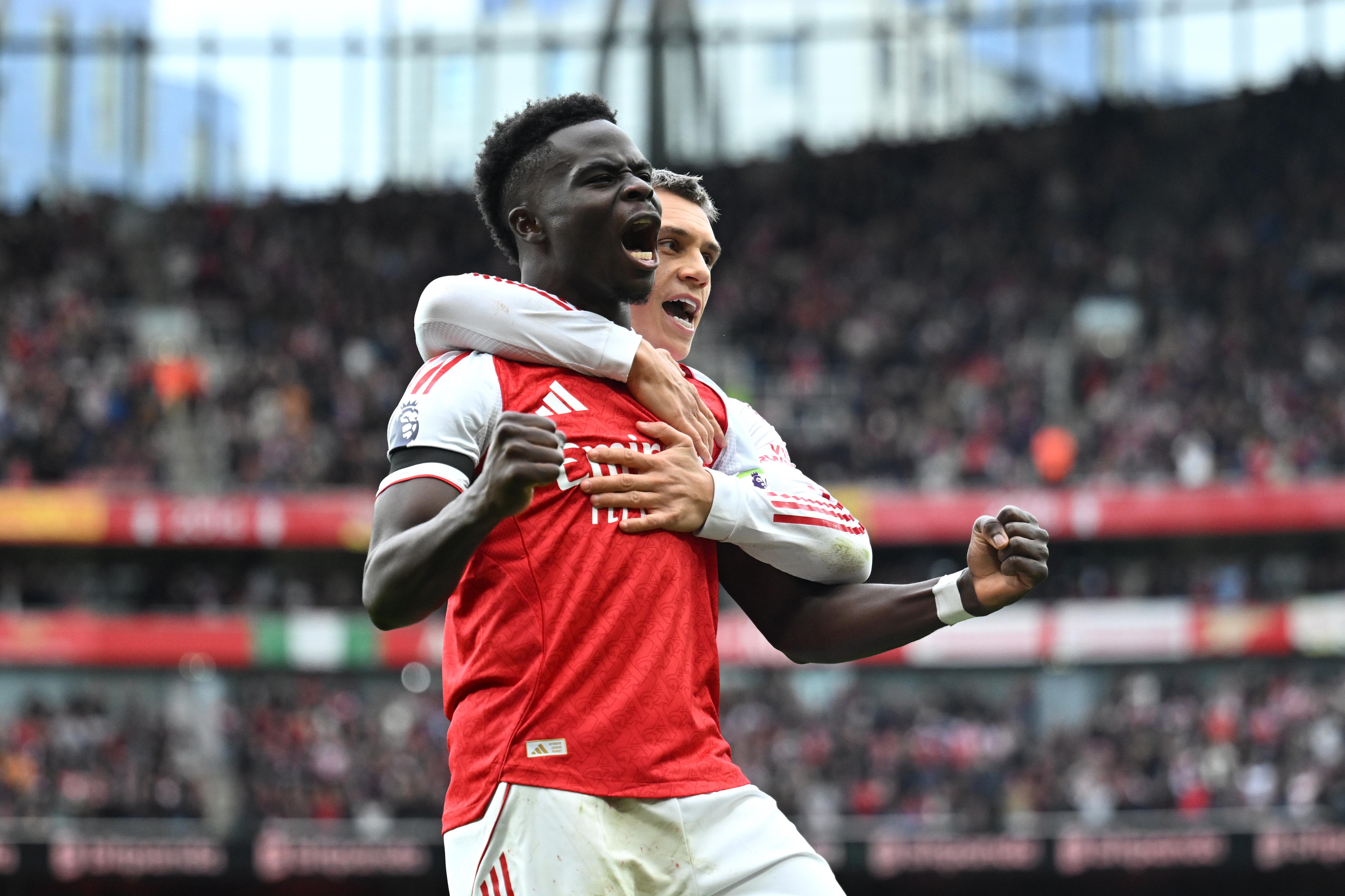Sam Jones
Bournemouth

Coaching Expertise Profiling Tool


About The Tool & Research
Coaching Expertise Profiling Tool
The Tool
Over the past two years, the Premier League, Dublin City University the Insight Centre for Data Analytics have been working together on the Coaching Expertise Project. The aim was simple: to deepen our understanding of coaching skill and expertise, so we can strengthen coach development across the academy system and build a globally leading coaching pathway.
The Research
Coaching expertise is highly contextual, shaped by players, club, and environment, and differs across academy phases. The first phase of the Expertise Project explored what expertise means in each phase through 18 peer-nominated Category 1 coaches. Each contributed 12+ hours of interviews and two days of observations with Dr Michael Ashford. Using diverse qualitative methods, the study examined how expert coaches interpret key cues, meet specific demands, and adapt strategies effectively.

Coaching Expertise Profiling Tool

Understanding the Tool
Coaching Expertise Profiling Tool
Building on this work, we created a series of practice the Coach Profiling Tool. Each simulation presents a challenging episode that highlights a particular coaching demand.
When you used the tool, you were asked how you perceived and responded to the situation – this is then analysed and used to provide feedback.
You will complete the tool periodically on ECAS. Each time, you will engage with 5–6 simulations from phase-specific coaching demands, which aims to:
• To challenge your coaching with difficult scenarios taken from the experience of some of the best coaches in academy football
• To give you personalised feedback you can use to focus your development action plan and strengthen your coaching expertise.
• To track and monitor your ECAS journey.
The next pages give you an idea of the identified demands for your phase and feedback intended to help you. If you have any questions regarding the content, please contact Alex Burns (alex.burns@insight

Coaching Expertise Profiling Tool

Using the Feedback
Coaching Expertise Profiling Tool
Using the Coach Profiling Tool, your response are compared with those of an 'Expert Group' of coaches from the Coaching Expertise Project. Feedback focuses on how you navigated scenarios – including the strategies you used, the cues you perceived, and the potential errors you identified.
Your responses throughout the profiling tasks for each coaching demand are then classified into three categories:
You have been provided with feedback based on your expertise profile for each coach demand in your academy phase, highlightin g areas of strength and considers to build into your Development Action Plan

Coaching Demands - FP Coaching Expertise Profiling Tool
Laying Lifelong Foundations
Harnessing a Love for Football Whilst Supporting Effortful Practice
Captures the difficulty of designing experiences that build strong developmental foundations to support players’ progression through, and beyond, the academy
Coaches need to balance competing developmental priorities. Focusing too much on technical skill can limit tactical growth, while rigid game models constrain creativity.
Ensuring fairness while differentiating for ability adds further tension, as does finding the right challenge level for each player. Observation pressures can heighten player’s anxiety and time needs to be divided between movement competency and ball skills. Formats like 7-aside limit opportunities, maintaining balanced, inclusive development becomes increasingly complex. The transition to YDP is increasingly difficult as minimum capabilities rise.

Working With and Through Parents
Captures the difficulty of navigating the tension between sustaining enjoyment and effortful practice
Balancing motivation, enjoyment, and development within young players who are still forming their understanding of the game. Novice coaches may misjudge this balance, overemphasising fun or disciplined practice.
Coaches can also influence the player to become too focussed on the outcome over the joy of the process. Early professionalisation risks stripping away the enjoyment that sustains long-term engagement. Maintaining engagement requires finding the sweet spot between technical repetition and enjoyment, all while working with children who may struggle to focus or grasp the deeper purpose of their training.
Captures the difficulty of supporting a player through parental interactions
There’s a Long Way to Go
Putting the Child First
Captures the difficulty of managing the reality that the foundation phase is at least a decade away from the end of the academy journey
Captures the difficulty of navigating an increasingly professionalised environment while providing appropriate experiences for children.
This demand is difficult because parents’ protective instincts and personal priorities often clash with their child’s developmental needs.
Wide variation in parental expectations, values, and involvement makes alignment challenging, while limited understanding of academy structures can fuel confusion and inconsistency.
Investment can quickly escalate disagreements, making constructive, trust-based relationships hard to sustain. Coaches can also easily become emotional and conflict with parents.
Foundation phase coaching involves navigating uncertainty and competing values. Striking the right balance between standards and fun is inherently difficult.
It is also challenging to offer equitable playing and training opportunities with the fluidity of age groups. Assessing potential is speculative, as players’ growth and circumstances can change dramatically over time.
Shifting club priorities, early labelling and external competition further distort development, creating pressure to professionalise too soon and undermining the patience needed.
Children are often immersed in environments that mirror adult structures and expectations, which can negatively impact their experience.
The pressure to meet expectations from parents, schools, and academies can overload children. Facilities, kit, and reputation create a professional feel that contrasts with age-appropriate development, while excessive training and pressure increases the risk of burnout and disengagement.
Overall Categorisaton
Coaching Expertise Profiling Tool

Laying Lifelong Foundations
Sam Jones – Coaching Expertise Profiling Tool Feedback
Demand Difficulties: Captures the difficulty of designing experiences that build strong developmental foundations to support players’ progression through, and beyond, the academy
Based on the profiling tool, your responses suggest a thoughtful appreciation of the challenge of laying strong developmental foundations in the Foundation Phase, and a clear intention to balance technical growth with broader football understanding. You demonstrated good awareness of valuing exploration and subtle stretch encouraging players to take risks, make “good errors,” and problem-solve without rushing to solutions. This aligns well with building adapta ble, game-intelligent players who can transfer learning as they move through the pathway.
A key strength was your varied practice design, using small-sided games, changes in pitch dimensions, and shifting constraints to expose players to different problems. This approach expands players’ perceptual and decision-making skills while keeping practice engaging. You also recognised the importance of paired tactical work helping players begin to understand spacing, pressing moments, and anticipation and your willingness to spot when players were stretching themselves and celebrate those moments showed good alignment with long-term learning.
At times, there were missed opportunities to leverage these same principles more consistently. For example, while you noticed “good errors” and tactical emerging behaviours you sometimes moved too quickly to support players without fully allowing them to experience struggle, reflect, and find their own solutions. It is important to protect those moments of productive difficulty particularly when players begin to form early tactical pictures rather than resetting or stepping in too soon. Similarly, while you frequently recognised understanding gaps, going a step further and probing why a player made a particular decision (“What did you see? What were you trying to do?”) will strengthen their ability to link intention with action.
Moving forward, continuing to weave technical, physical, and game-understanding threads together rather than treating them as separate priorities will deepen the foundations you are building. Keep tuning into both sides of the ball, ensuring attacks and defensive behaviours receive equal attention, and consider how you can use brief reflection moments or simple player language checks to strengthen comprehension without losing flow. This phase is about building adaptable movers, thinkers, and decisionmakers and by preserving freedom, embracing error, and layering in subtle tactical prompts, you can keep developing players who stay joyful, creative, and ready for progression.





Harnessing a Love for Football Whilst Supporting Effortful Practice
Sam Jones – Coaching Expertise
Profiling Tool Feedback
Demand Difficulties: Captures the difficulty of navigating the tension between sustaining enjoyment and effortful practice
Based on the profiling tool, your responses suggest a solid appreciation of the need to balance enjoyment with stretch in the Foundation Phase, recognising that young players need to feel the joy of football while also being nudged toward effortful learning. You demonstrated an understanding of the importance of observing player behaviour as a cue noticing signs of frustration or withdrawal as indicators that challenge may need adjusting and you showed willingness to adapt when players began to drift or disengage. This ability to respond to negative cues is a valuable foundation, helping maintain both motivation and psychological safety in young players.
You also demonstrated an awareness of the need to balance “what players want” with “what they need,” and used some strategies that link joy with purposeful practice, such as incorporating small doses of individual work alongside game-based activities. The introduction of playful reference points and individual technical interventions showed your intent to blend fun with learning, particularly when using a floating player to work on specific actions. These are positive early steps toward disguising learning in ways that feel enjoyable and meaningful for children.
The next stage in your development lies in broadening how you recognise and act on positive cues not just noticing when enjoyment drops, but deliberately tuning into smiles, excitement, and energy as indicators that difficulty levels are appropriately balanced. Giving equal weight to positi ve signals can help you judge when to keep players in the stretch zone, rather than dial challenge back too quickly. Alongside this, building more consistent use of playful analogies, stories, and player-relevant references (e.g., linking to favourite Premier League players) will help bring key ideas to life and support understanding without losing the sense of fun.
Finally while you recognised the need for disguised learning and competitive challenges, there were missed opportunities to fully use these tools for example, shaping match-ups and constraint design more intentionally to stretch players who are thriving, or helping individuals recognise “good struggle” as a sign of progress rather than failure. Continuing to strengthen how you frame challenge as part of the joy of learning and helping players regulate their emotions and stay connected in tough moments will support both love of the game and long-term development.



Working With and Through Parents
Sam
Jones – Coaching Expertise Profiling Tool Feedback
Demand Difficulties: Captures the difficulty of supporting a player through parental interactions
Based on the profiling tool, your responses suggest you place strong value on working with parents rather than simply managing them, showing a clear instinct to build relationships and communicate openly in order to positively shape the player experience. You demonstrated meaningful efforts to educate parents on the ‘why’ behind key decisions for example, clarifying behaviour expectations during fixtures and reinforcing acceptable sideline conduct. These moments reflected a good understanding that parents often act from a place of care, and that offering rationale can help guide emotions and align perspectives.
You also showed awareness of emotional cues, recognising when tone, posture, or proximity shifted during exchanges an important skill when conversations move into more sensitive territory. Your instinct to listen first and paraphrase parents’ views before offering explanations provided a solid foundation for maintaining trust, particularly in heated or uncertain moments. There was also evidence of calmly reinforcing expectations after incidents, making clear where behaviour had crossed boundaries and that it would be addressed in line with club standards.
However there were instances where empathy and support could have been expressed more actively. For example, when parents became fr ustrated or expressed anger from the sideline, there was a missed opportunity to recognise this as a signal that they may have needed reassurance or guidance, rather than simply asserting boundaries. Similarly, while you were comfortable educating parents in the moment, there were times where planning for follow-up or involving parents in shared reflection would have strengthened alignment and avoided repeated tension. Proactively checking for external factors at home or school that might be influencing behaviour was also lacking, which, when missed, risks overlooking key context that could support both the player and family more holistically.
Another area to evolve is how and when you set boundaries around communication. Although there was an intention to maintain professionalism, there were moments where expectations around timing and process weren’t fully established allowing unplanned, emotional conversations to unfold in ways that could have been better structured. Being deliberate in choosing the right time and space for difficult conversations, while still holding empathy, will help guard against escalation and protect both relationships and clarity. By deepening the empathic side of these exchanges, proactively shaping when and how they occur, and attending more closely to parents’ emotional signals and underlying needs, you can further strengthen parents’ trust in you and your ability to meaningfully influence their role in their child’s journey.




There’s a Long Way to Go
Sam Jones – Coaching Expertise Profiling Tool Feedback
Demand Difficulties: Captures the difficulty of managing the reality that the foundation phase is at least a decade away from the end of the academy journey
Based on the profiling tool, your responses suggest a grounded appreciation that Foundation Phase players are right at the start of a long journey, and that early performance never guarantees nor limits what a child may become. You demonstrated a healthy instinct to avoid rushing to judgement, instead reassuring families when progress fluctuates and anchoring conversations in patience and possibility. This came through in how you protected children from premature pressure and recognised that they need time, space, and freedom to explore the game, make mistakes, and enjoy learning without every moment being tied to a future outcome.
The opportunity now is to make this belief more visible and deliberate in daily practice. While the mindset was clear, there were moments where you could have embedded it more actively for example, through consistent language that normalises non-linear growth, through purposeful rotation of positions and experiences, or by drawing attention to the value in slow, steady progress as much as standout moments. These small, repeated behaviours help players and parents feel the long-view approach, not just hear it.
Similarly, while you recognised the need to widen rather than narrow possibilities this early, there is scope to design environments that more explicitly reflect that principle. Allowing players to explore different challenges, roles, and contexts and noticing how they respond gives useful information without prematurely steering their path. Even subtle routines, like celebrating curiosity and perseverance as much as technical moments, reinforce the message that develop ment at this stage is about building foundations, not forecasting futures.
Finally, consider using individually-relevant and relatable examples to bring the “long way to go” message to life. Helping players and parents visualise development as a journey full of speed bumps, pauses, and surprises can strengthen trust and patience when things feel slow or uncertain.
The foundations of your approach are strong. Embedding this long-term lens more consistently in your planning, language, and interactions will continue to protect children from early judgement, sustain their love of the game, and keep them excited about what lies ahead without feeling rushed to get there.




Putting the Child First
Sam Jones – Coaching Expertise Profiling Tool Feedback
Demand Difficulties: Captures the difficulty of navigating an increasingly professionalised environment while providing appropriate experiences fo r children.
Based on the profiling tool, your responses suggest a strong instinct for protecting the child at the centre of the experience, even when surrounded by increasingly adult expectations and professionalised structures. You demonstrated clear sensitivity to the emotional and developmental needs of young players noticing moments where frustration, overload, or social pressure might take hold, and responding in a way that prioritised well-being over performance optics. This reflects an important appreciation that long-term engagement and growth in the Foundation Phase are sustained not through pressure, but through emotional safety, joy, and connection.
You showed good awareness of the wider ecosystem around the child recognising the role of parents, school, and peers and how these influences can shape a young player’s experience. You actively worked to keep messaging child-centred, and you recognised that players sometimes need time, space, or co-regulation rather than immediate football-focused feedback. Moments where you framed games as experiences rather than judgments of potential, and where you protected players’ confidence during difficult patches, aligned closely with expert behaviours in this area.
Where development lies is in more consistently holding this stance when emotions rise both yours and others’. There were instances where you recognised the risk of overprofessionalisation but did not always proactively intervene to redirect narratives or behaviours (for example, when adults, including staff, drifted toward performance-driven language or expectations). Similarly, while you showed strong individual care, there were missed opportunities to ensure parents and other staff were fully aligned in reinforcing a child-first message across contexts, helping avoid mixed messages or unintended pressure.
A useful refinement will be to more deliberately anticipate these moments before they arise planning how to communicate expectations to parents and staff, rehearsing language that reinforces the “child first” mindset, and monitoring for subtle shifts toward adult frameworks, status behaviours or comparison culture. When pressure builds, anchoring to child-centred principles early rather than reacting once a moment escalates will help safeguard the experience even more consistently.




Next Steps
Coaching Expertise Profiling Tool
Upon receiving this feedback, the next actions for you to complete are as follows:
1. Book a Coaching Call
• Using the link provided below, book a Coaching Call with either Danny/Brunchy and Alex to discuss the feedback findings
• Book Here - https://go.oncehub.com/ExpertiseFeedbackCalls
2. Complete Form Highlighting Curiosity Areas
• Naturally, there is a lot of information and feedback provided in this document
• To help shape the call and maximise time on the areas that mean the most to you, please complete the form ahead of the Coaching Call, using the link below, highlighting your priority areas/areas of curiosity
• Complete Form Here - https://forms.office.com/e/tPjwM2pCHH

Coaching Expertise Profiling Tool

Thank you

